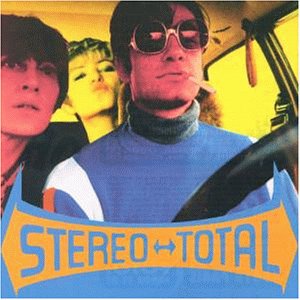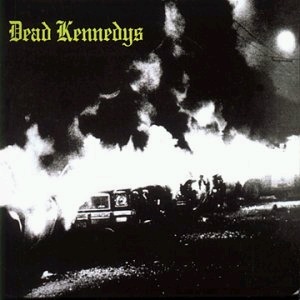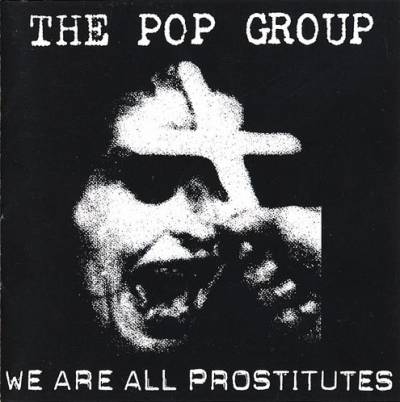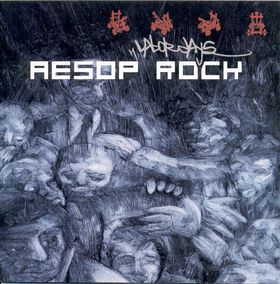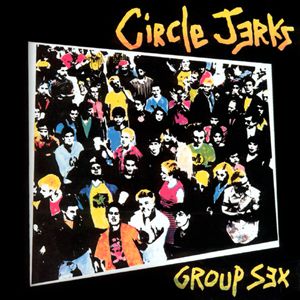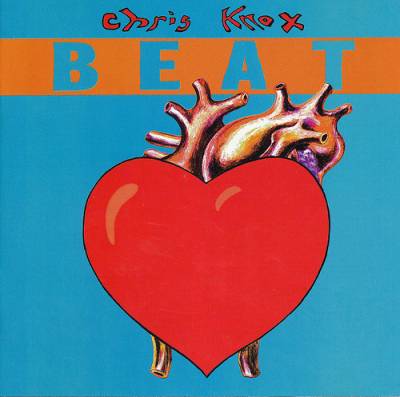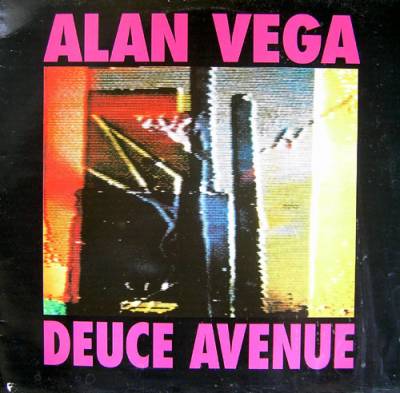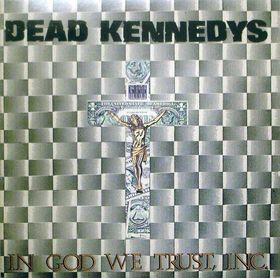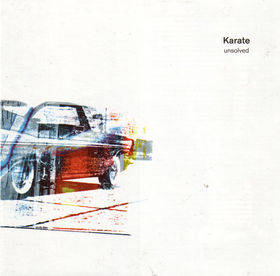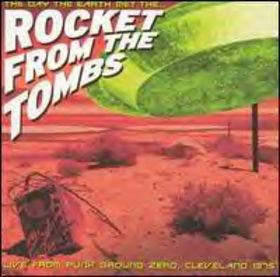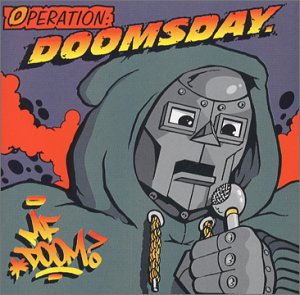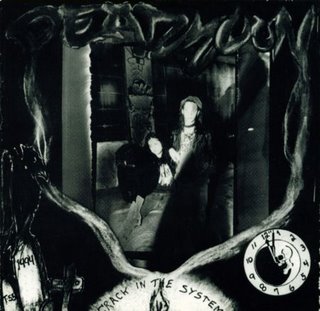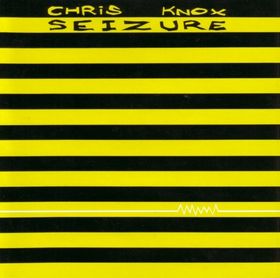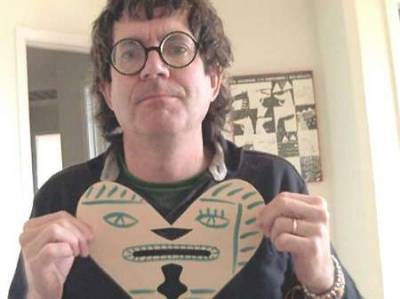 Jad Fair
Jad Fair is America's anti-music poster child, the personification of DIY. Both as a member of
Half Japanese and with his countless solo albums, he continues to baffle listeners with his unwillingness to conform to any conventions, be they as universal as being able to play an instrument or sing in tune. If you do this once or twice you are simply being ignored, but Fair's tenacity made it impossible to overlook him. Similar to his friend
Daniel Johnston, with whom he collaborated on two albums, he's achieved a cult status because his passion for music is simply inspiring.
That is not to say he hasn't progressed - his later albums are far more accessible than his early releases - but that's often due to the fact that he's been collaborating more and more with serious musicians. These collaborations often lack the immediacy of Jad's strictly solo work, and sometimes end up being distinctively average or uninspired, such as the concept album he released with
Yo La Tengo where he babbles strange newspaper headlines over canned sound collages sent to him by YLT.
I'm posting 8 of his albums here in one post, because chances are if you're not already a fan you probably find this all very annoying. Instead of chronologically, I'll present them to you in order of accessibility: from the barely listenable to the almost slick:

Jad Fair - The Zombies of Mora-Tau (1980)Jad's solo debut, the 7-track, 11-minute EP continues in the tradition of very early
Half Japanese albums like
Half Gentleman/Not Beast, but it's even more noisy and a lot more in-your-face. If it were a bit more structured I'd call this
industrial. Play this record the next time your grandmother visits or to annoy your neighbours. It has some great moments on it, and all the songs are short enough to use them as fillers in your next mix-tape.
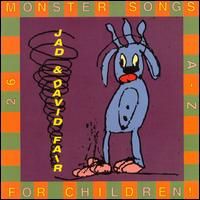 Jad & David Fair - 26 Monster Songs for Children (1998)
Jad & David Fair - 26 Monster Songs for Children (1998)This collaboration with brother David is a concept album featuring pretty much what the title says. There is a monster song for every letter in the alphabet and each song is preceded by a short introduction from a little kid explaining in his own words what the particular monster is about. The songs are rather tedious at times and about as mature as the target audience, but it has its charming moments, especially for people who like monsters (and who doesn't?).
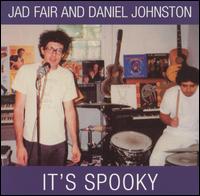 Jad Fair & Daniel Johnston - It's Spooky (1989)
Jad Fair & Daniel Johnston - It's Spooky (1989)
Maybe his most popular album, and it's a cute one. Beautiful songs and stories, delivered in a charmingly inept manner. The rhythms are all over the place, the guitars out of tune, and the vocal duets grate, but in typical Fair and Johnston fashion, this doesn't matter much and instead forces you to pay more attention to the stories and harmonies than the presentation.
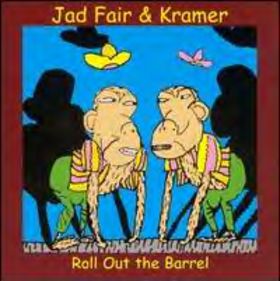 Jad Fair & Kramer - Roll Out The Barrel (1988)
Jad Fair & Kramer - Roll Out The Barrel (1988)A collaboration with
Shimmy Disc's
Kramer that I have mixed feelings about. It's one of those records that is jam-packed with great ideas, but it somehow doesn't fit all that well together. Kramer is sometimes getting carried away and Jad babbles more than he's singing. There are a bunch of tracks that make up for this because they are downright psychedelic and eerily beautiful.
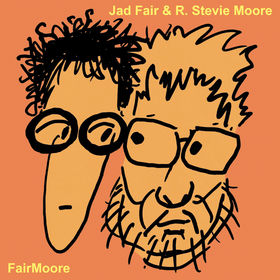
Jad Fair & R. Stevie Moore - FairMoore (2002) This collaboration works better than some of the others, probably because both
R. Stevie Moore and Jad Fair are so much more similar in their approaches. There's a lot of variety here, samples from all over the place, and no lack of creativity. Musically, this is all over the place, which makes it all the more interesting, but it can be difficult to digest in a single setting.
 Jad Fair & Yo La Tengo - Strange But True (1998)
Jad Fair & Yo La Tengo - Strange But True (1998)The aforementioned album, that left me as both a Jad Fair and
Yo La Tengo fan wondering what could have been. It sounds like a YLT jam session in 22 parts and Jad Fair tells us the stories he thinks should go along with the actual newspaper headlines used in the title. Very random stuff.
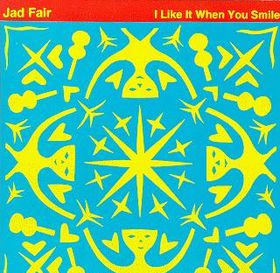 Jad Fair - I Like It When You Smile (1992)
Jad Fair - I Like It When You Smile (1992)So this is what Jad Fair sounds like when too many serious musicians are involved.
Dinosaur Jr.'s
J Mascis,
Shimmy alumni and member of the
Velvet Monkeys Don Fleming, and
NRBQ's
Terry Adams all lend more than one helping hand, and the result is borderlining radio-friendliness. Of course, it wouldn't be a Jad Fair album if he wouldn't throw in some really messy songs, and he doesn't disappoint with the very weird cover of
"Sunny Side of the Street" and the avant-gardish
"Roadrunner".
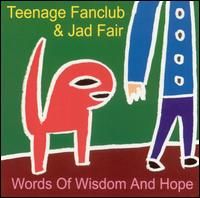 Jad Fair & Teenage Fanclub - Words of Wisdom and Hope (2002)
Jad Fair & Teenage Fanclub - Words of Wisdom and Hope (2002)The album that's musically the furthest detached from his early records, this collaboration with
Teenage Fanclub is downright smooth. It's basically a Teenage Fanclub album with Jad singing, and even that he does unusually melodic. That being said, it's a nice album with the added bonus effect that you can play this to your indierock friends without them freaking out.


